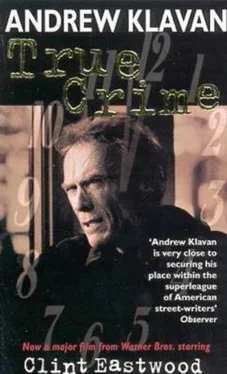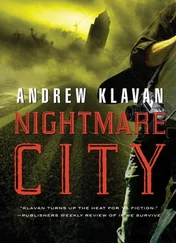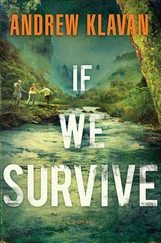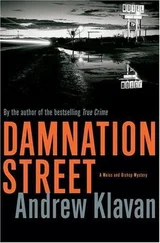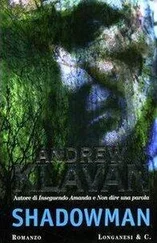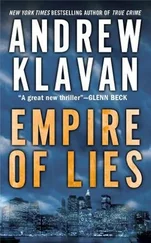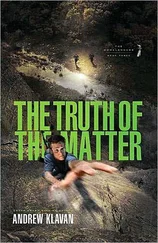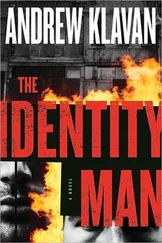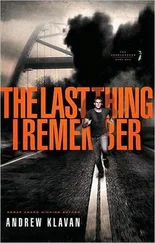Andrew Klavan - True Crime
Здесь есть возможность читать онлайн «Andrew Klavan - True Crime» весь текст электронной книги совершенно бесплатно (целиком полную версию без сокращений). В некоторых случаях можно слушать аудио, скачать через торрент в формате fb2 и присутствует краткое содержание. Жанр: Криминальный детектив, на английском языке. Описание произведения, (предисловие) а так же отзывы посетителей доступны на портале библиотеки ЛибКат.
- Название:True Crime
- Автор:
- Жанр:
- Год:неизвестен
- ISBN:нет данных
- Рейтинг книги:4 / 5. Голосов: 1
-
Избранное:Добавить в избранное
- Отзывы:
-
Ваша оценка:
- 80
- 1
- 2
- 3
- 4
- 5
True Crime: краткое содержание, описание и аннотация
Предлагаем к чтению аннотацию, описание, краткое содержание или предисловие (зависит от того, что написал сам автор книги «True Crime»). Если вы не нашли необходимую информацию о книге — напишите в комментариях, мы постараемся отыскать её.
True Crime — читать онлайн бесплатно полную книгу (весь текст) целиком
Ниже представлен текст книги, разбитый по страницам. Система сохранения места последней прочитанной страницы, позволяет с удобством читать онлайн бесплатно книгу «True Crime», без необходимости каждый раз заново искать на чём Вы остановились. Поставьте закладку, и сможете в любой момент перейти на страницу, на которой закончили чтение.
Интервал:
Закладка:
And at about that time, just around eleven-thirty, I turned the corner onto Knight Street again. It had been a crazy drive there, crazy and intense. My front fender devouring the road. Green lights, red lights, vanishing overhead. No brake under my feet, the other cars before and around and behind me imagined out of existence, imagined into pure space, as my whole being focused through them on the night beyond the windshield and my will shielded me from the eyes of the police.
And so I made it. I turned the corner onto Knight Street. Sick now. Exhausted. Woozy and dull. There was a ceaseless, painful pulsebeat in my skull. My right hand was stiff and swollen. I could barely hold my head erect, my eyes open. Drunkenness came over me in green splashes that made my gorge rise. And yet, for all that, I was thinking more clearly now than before, seeing things more clearly. There’s nothing quite like having your hand crushed in a door to straighten out your senses in a big hurry.
I made the turn and slowed the car sharply. I cruised into the shadow of the slum. The streetlamps were busted there, and the line of grimy brick buildings seemed to hunch back from the highway into the night. Paper and soda cans crunched under my tires as I pulled the Tempo up against the curb.
I killed the engine. The street around me was empty but it felt threatening all the same. Alleys and recesses deep black. Music with jackhammer rhythms drifting down from the upper stories. A staring presence somewhere-somewhere-in a window above me. And voices from a side street, young men’s voices, laughing harshly, angry, secret. Traces of whispering congregations. And everyone but me was black on these streets, and I was afraid.
I glanced down at the dashboard clock. That’s when I saw it was eleven-thirty. Lowenstein lived-not far from my house-in a mansion on Washington Terrace. Twenty minutes away for a mortal Ford, fifteen, maybe ten, for me and the Tempo. My belly bleak, my mind panicked and desperate, I told myself that I could phone him if I had to. I could phone Alan to get the unlisted number, and then phone Lowenstein and make my case. But the thought almost made me laugh: to bring him around on my say-so, to get him to risk his friendship with the governor, to get him to beg for a delay of the execution-I knew it wasn’t going to happen unless I walked through his door with that locket, and probably with Mrs. Russel in tow as well.
I leaned over and looked out the passenger window, looked up at the building in which she lived. The lights were out in there from top to bottom.
I gathered my strength. My body felt like a dead weight carried on the shoulder of my will. I threw the weight against the car door and stepped out into the street.
By then, by eleven-thirty, Bonnie Beachum was, I guess, technically insane. Sitting alone in a visitors’ waiting room-a bare white room in the prison’s main building-sitting in one of the tube chairs around a long wooden table, her hands folded on her skirt, her bagged, sunken eyes staring at nothing.
Since she had left Frank’s cell that evening, she had spent most of her time in her motel room, praying. She had prayed aloud at first, in a low voice, on her knees by the bed, her elbows on the mattress, her red hands clasped under her chin. She had prayed till her voice was raw and then she had prayed in a whisper. She had driven back to the prison at eleven, only her lips moving as she drove, the words inaudible. And now, as she sat, unmoving, as she gazed far away, she had worked herself into a kind of hysteria, a kind of madness, a silent frenzy of supplication.
Later, when it was all over, when she had more or less recovered from the emotional collapse that followed, she did not remember much about these last minutes. It seemed to her she had been carried, disembodied, over vast distances on a torrent of wild words. She had been a child again, at times, in her childhood places, hiding in the milk farm grass giggling, working in the kitchen with her fretful mother, in her childhood shift or naked under the Missouri sky and the holy, bloodred sun to which she prayed. At other times-or was it simultaneously-she had stood stripped almost to the bone before the cloudy bar of heaven with great grim patriarchs strung above her as she raved up at them with primitive, glottal cries. As she sat, her hand strayed vaguely to her chest, she scratched softly at the space below and between her breasts, because in her mind she was tearing her whole torso open with both clawed hands, ripping her wifehood from out her ribs to hurl it gory on the altar of the Lord who could not, surely, kill her husband, let her husband die, if he saw that , if he knew that , if he only knew …
Then there was blackness sometimes, a low mewl of petition, almost restful, and yet terrifying, because she was aware of the time passing even then. But she was aware of it also in her interior visions. And sometimes, with a stagnant, deathly clarity, she saw the clock, the real clock on the wall. Eleven. Eleven-twenty. Eleven twenty-seven. And then she began praying again-if prayer is what it was-and she was borne away to that country, which is not our country, that world, which is not our world, where love and innocence are arguments in favor of a better life.
When Tim Weiss, one of Frank’s lawyers, walked into the waiting room at eleven thirty-one, the sight of her stopped him in his tracks, turned him cold and made his mouth go dry. He had not seen her for six weeks, and the change in her struck him hard. She was haggard, emaciated, frenzied in her depths-he perceived all that in a second and went pale.
Weiss was only around my age, thirty-five or so, but he was bald with a frizzy fringe of silver hair, and his face looked as if it had been made for old age. The flesh saggy, the lips slack and damp, the eyes sad. He put an unsteady hand on Bonnie’s shoulder. She raised her eyes to him. He tried to swallow but couldn’t. “Unseeing,” was the word that came into his mind.
“How are you holding up, Bonnie?” Weiss said.
She looked away again and if she gave any answer, she did not give it to him.
Weiss was almost relieved when, at eleven thirty-five, the guard came in and told them it was time to go to the witness room outside the death chamber.
Then I walked across the deserted street. I climbed the stoop to Mrs. Russel’s door. There was the graffito-slashed mailbox again. The blue name carefully inscribed beneath the splash of brown paint. I pressed the buzzer. I stood, blinking and dull-witted. I heard an angry bass-line throbbing out of a radio far away. I pressed the buzzer again. I lifted my head. Though I couldn’t see her window from that position, I stared up along the grime-dark, night-dark bricks. I pressed the buzzer again and then I pressed it again, jabbing my thumb against the button. Again and again, breathing harder and harder. And then a sudden gush of rage coursed through me. I hit the door, hammered the frame once with the side of my swollen fist. The shock of pain went up my arm and up my neck. I cursed, angrier still. I kicked the bottom of the door, then I slammed the heel of my left hand against the edge of it. “Come on!” I growled. Then I kicked it again, hammered it with my hurt fist again, ignoring the pain, hammering it again and slugging it again with the heel of my left palm, kicking the base of it again and again, throwing my whole body into the blows now, my face contorted, my lips drawn back over my teeth, the shouts of frustration caught in my throat, bursting from my throat in choked gutturals as I hammered and slugged and kicked at the goddamned thing. The goddamned, fucking thing …
I collapsed against it. The anger sizzled out of me, dissipated in the warm night air. What was the use? I leaned against the door and my shoulders slumped, my legs went slack. I pressed my forehead against the wood of the frame. I felt the pressure of it against my wound, against the drying, sticky blood. I felt the uneven, splintery surface against my skin. I stayed there, breathing hard, and closed my eyes tight. I groaned. A single tear broke out from under my eyelid, touched my cheek and fell. I sobbed once-in frustration more than anything-and then just leaned there, slumped, my eyes closed, my body propped against the door.
Читать дальшеИнтервал:
Закладка:
Похожие книги на «True Crime»
Представляем Вашему вниманию похожие книги на «True Crime» списком для выбора. Мы отобрали схожую по названию и смыслу литературу в надежде предоставить читателям больше вариантов отыскать новые, интересные, ещё непрочитанные произведения.
Обсуждение, отзывы о книге «True Crime» и просто собственные мнения читателей. Оставьте ваши комментарии, напишите, что Вы думаете о произведении, его смысле или главных героях. Укажите что конкретно понравилось, а что нет, и почему Вы так считаете.
